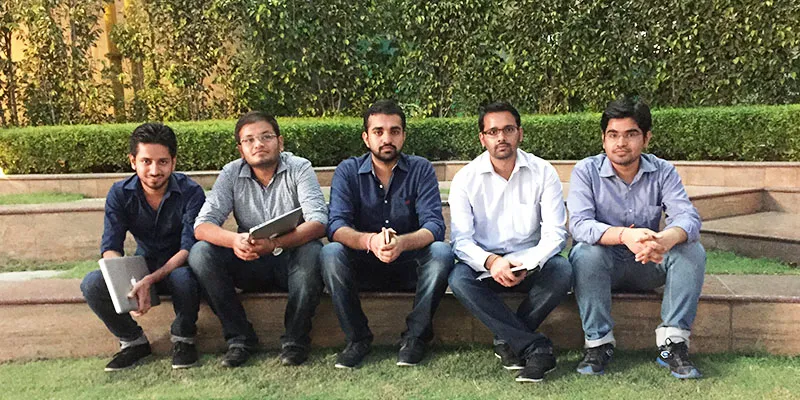With a database of over 200,000 images of fashion apparel, Staqu helps users find products with a single camera click
Just like any other youngster, Atul Rai wanted a particular kind of shirt that he couldn’t find anywhere online. He Googled every keyword that came to his mind, hoping to get closer to what he was looking for, but it was all in vain.
“I realised that most of the existing e-commerce platforms don’t have the ability to utilise the visual content of images in a constructive way. I wished I could just click a picture of what I wanted and use it to find it online,” says Atul.

A self-proclaimed computer geek, Atul wanted to get to the root of the problem. So he gave up on coming up with different keywords to search and instead called his childhood friend, Abhishek Sharma. They both started Staqu Technologies early this year.
Atul has a Masters from University of Manchester in Artificial Intelligence, while Abhishek is a PhD in Computer Science from University of Maryland. He is an expert in biometrics, deep learning, image understanding and machine learning.
The duo decided to rope in four more technology-rooted co-founders. Together, they are making the old saying ‘A picture is worth a thousand words’ all the more true. Staqu is an imagetoimage matching system. All the user has to do is click an image and upload it on to the platform. The results will show products similar to the image uploaded by the user.
The algorithm used in this search process can identify patterns, colours, designs and texture, and tries to match the visual content extraction capabilities of humans.
According to a recent report on e-commerce in India, the market size of the sector was USD 13.6 billion last year, and is projected to cross USD 16 billion by the end of 2015. Also, a recent Google, India report said that online shoppers in India are expected to cross the 100-million mark by end of year 2016.
Major Indian e-commerce giants like Flipkart, Snapdeal, Jabong, Myntra are trying everything they can to get a chunk of this growing market. Some are even working on similar image-based search platforms to help customers shop more easily online.
Abhishek says, “Our target is to revolutionise the fashion sector with our visual search and recommendation system by partnering with as many e-commerce companies as possible, for an overall improvement in user experience when it comes to e-tailing.”
With over two lakh images of fashion apparel in its database, this Delhi-based startup has served over 2,000 image queries from customers since its launch in August. Staqu has three major competitors in the market right now – Mad Street Den, Wazzat Labs and SnapShopr.
For fashion e-commerce, visual search algorithms can power visual search, recommendations, interactive store-front retail displays, virtual mirror (building the tech to enable this use case with partners), and social fashion-based analytics and many more use cases for the same customers. (Read more about how visual search meets e-commerce)
“We work with any kind of image. Most of the images that we’ve processed so far were clicked on smartphones, but there have been instances where people upload images taken on webcams too,” says Atul.
Staqu’s image matching algorithm can work with images under varied lighting, pose and occlusion conditions. Customers have successfully found clothes similar to their favourite TV broadcasters and celebrities, but there are times when the algorithm goes wrong, and hilariously so.
“We are all still learning. Somebody once searched for flashy pink flowers and got results for floral kurtis. Another time, someone uploaded a picture of a MacBook keyboard and got recommendations of black shirts with white checkers, ” laughs Abhishek.
Today is a learning process, according to Atul, but the future is all about revolutionising e-commerce. “Our aim is to change how people treat images when it comes to etailing. Be it fashion search or product recommendation, we want to revolutionise how product search happens in India. And that is just the beginning,” he adds.
Staqu is still a bootstrapped startup and does not plan on raising any external investment in the near future. Meanwhile, like other visual search platforms, its efforts will be towards tying up with e-commerce players to expand its database.







